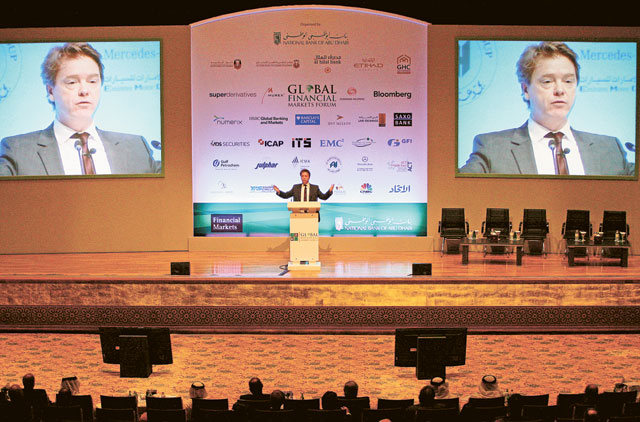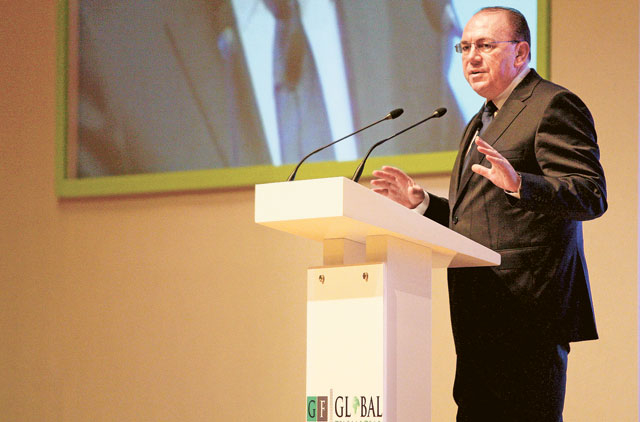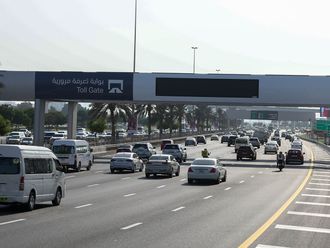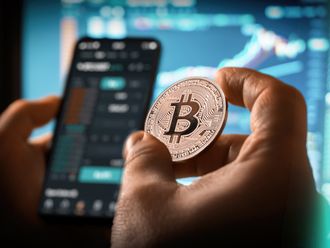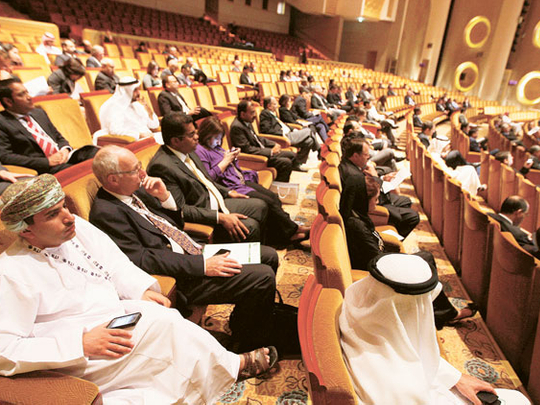
Dubai The UAE's market fundamentals remain solid, but not immune to global economic headwinds, senior executives said Thursday at the Global Financial Markets Forum in Abu Dhabi.
The local economy has slowed in recent years with several key infrastructure projects either cancelled or put on hold after falling victim to the global financial crisis.
Several state-linked entities, including Drydocks World and Jebel Ali Free Zone Authority, are in the process of restructuring their debts while the UAE's equity markets, aside from a recent bull rally, have seen volumes plunge in the last few years on a lack of investor appetite for risk.
However, senior officials at some of the UAE's key economic pillars were unanimous yesterday in their belief that growth rates are set to pick up the pace in 2012.
"In the last three to four years, restructuring was in excess of 50 per cent of our activities," said Paul Reynolds, managing director at Rothschild Middle East.
"However, now more than half of our business is related to healthy activities such as mergers and acquisitions. There is a lot more focus on investment and raising capital with the equity markets also showing relative signs of growth.
"In terms of institutional investors, banks and lenders, the whole world is slowing down. However, in Abu Dhabi, there is growth everywhere you look," he added.
Threats
The macro-economic backdrop still poses numerous threats to regional stability with Greece's sovereign debt crisis and Iran's nuclear programme among the key concerns.
However, the Abu Dhabi Chamber of Commerce and Industry expects the UAE capital's gross domestic product (GDP) to grow four per cent to Dh750 billion this year. Last month, Shaikh Ahmad Bin Saeed Al Maktoum, Chairman of the Dubai Supreme Fiscal Committee, said Dubai's GDP was expected to grow between 4.5 per cent and five per cent in 2012.
"I am feeling very positive about the UAE economy going into 2012," said Michael Tomalin, CEO of the National Bank of Abu Dhabi. "We are not immune [to global financial problems] but nobody is immune.
Tomalin says the UAE Government and market regulators are considering a slew of issues to make the UAE a key global financial centre perfectly placed between the time zones of Europe and Asia.
"The development of a domestic capital market is key [to economic growth] in terms of financing local projects as bank balance sheets are too small on their own," he said.
"The Abu Dhabi 2030 Plan is very special but the direction of travel is more important than the actual date we get there. We know projects are going ahead, but also know some projects had to be trimmed back, which was very sensible. Abu Dhabi and the UAE are in great shape and people should be investing in it," he added.
The Abu Dhabi Ports Company is one UAE entity confident of a strong 2012 after announcing yesterday that its Khalifa Port project is set to open in the fourth quarter of this year.
"The UAE has faced global headwinds in recent years, but remains a relatively safe port," said Tony Douglas, CEO of Abu Dhabi Ports Company. "In terms of container trade, the UAE saw 12 per cent growth last year with more than 13 million containers coming into the UAE.
"At Mina Zayed Port alone, we saw 47 per cent growth in traffic last year. The UAE Government is wisely investing in future transport infrastructure," he added.


